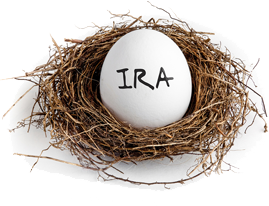Asking if your current spouse of many years can disinherit you is a question I hope you never have to ask. But, it’s an interesting query to say the least, and the answer may astound and amaze you.
It’s super uncomfortable, even for an estate planner like me, to think about my wife leaving me out of her estate plan, let alone her passing away. So, I’m going to use a hypothetical example.

Scenario: John, Mary, and the Lover
Let’s say John and Mary are legally married. One sad day, Mary has a massive heart attack and dies. John is shocked to discover that Mary had a valid will he knew nothing about. Far worse, Mary specifically disowned John, said John should get absolutely nothing, and instead Mary left her entire estate to her paramour (aka lover); someone John knew nothing about!
Wow, ice cold, Mary, ice cold.
What result? I’ll give you four options, pick which you think is most correct.
- The “manstress” gets everything, John gets nothing.
- John gets everything; the lover gets nothing.
- The lover gets everything, but only after a lengthy, awkward, and hard-fought court battle.
- The lover gets some of the estate, but so does John.
Have you picked?
Answer “D” is most correct, at least under Iowa law.
You see, under Iowa law, a spouse cannot completely disinherit another spouse (assuming they have a valid marriage and they are married at the time of the first spouse’s death).
Elective Share Law
Iowa has an “elective share” law. (You can read the specific Iowa Code Section here if you’re curious. The citation is Iowa Code § 633.237).
In Iowa, a surviving spouse chooses between inheritance under a will OR elective share in the deceased spouse’s estate. Until the surviving spouse files an affidavit for claiming elective share, it will be presumed that the surviving spouse will take the inheritance under the will.
In Iowa, the elective share of the surviving spouse comprises of all of the exempt personal property and 1/3 of the value of all real estate, after the debts have been paid off and 1/3 of whatever is remaining of personal property. The surviving spouse may occupy the homestead in lieu of taking the 1/3 share of real estate of the deceased spouse.
So, Can My Spouse, Disinherit Me?
Bottom line, my wonderful wife, Monica, cannot disinherit me so long as we are legally married. Even if she (or her lawyer) writes a will that states I should get not one single penny from her estate no matter what, I would still have the option of choosing an elective share. Obviously, in this case, just like in John and Mary’s situation, the decision will be an exceedingly easy one. The will give me zero, zilch, nada, nothing—of course I am going with the elective share option.

This is Monica & I on our wedding day!
But you know what? The elective share is a narrow exception that proves the general rule. By that, I mean the following: one of the great reasons to do proper estate planning, is that you can give what you want, to whom you want, how you want, when you want. (And if you do NOT do proper estate planning, well, then, you leave it up to the Iowa Legislature and Iowa Courts to dispose of your property).
Again, it bears repeating: estate planning allows to give what you want, to whom you want, how you want, when you want. On top of accounting for your loved one in you estate plan, you also have the wonderful opportunity to help the cause or causes that you are most passionate about through charitable bequests in your will.
Want more on this subject? Check out this Facebook live video of me explaining this “in person.”
Have more questions about you will and estate planning? Maybe how you and your spouse can achieve your collective and individual goals? How about avoiding conflicts of interest? I offer everyone a free one-hour consultation. You can reach me anytime through email at gordon@gordonfischerlawfirm.com or call my cell at 515-371-6077. I’d truly love to hear from you!








